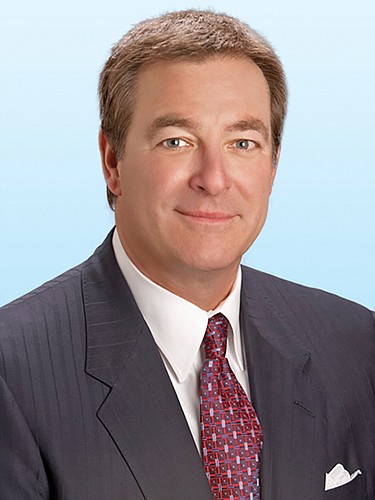- December 15, 2025
-
-
Loading

Loading

Lee Arnold has spent more than four decades in commercial real estate innovating, and at age 64, he shows no sign of stopping.
Chairman and CEO of commercial real estate services firm Colliers International Tampa Bay, Central Florida and Southwest Florida, Arnold's trailblazing began in 1974, when the former pilot decided to forego residential real estate sales.
“At the time, a lot of well-meaning old guys put an arm around me and told me I was going to fail,” says Arnold. “I loved that.”
To gain an edge over the competition, Arnold employed technology at every turn: He became an early and staunch proponent of cellular phones to conduct business, a device he refers to as a “differentiator.”
“I've never been intimidated by technology, and a lot of people are,” he says. “I'm also really into moving the ball, and technology allows you to do that. By the early 1980s, it was pretty obvious to me that data would be driving a lot of deals.”
That knowledge led him, in 1982, to create a computer software firm and buy one of the first personal computers containing a 10 megabyte hard drive. From there, Arnold's team began creating one of the industry's first Internet websites to market properties.
In time, Arnold would found Bayshore Solutions, an interactive Web-based marketing firm.
That innovative spirit also pushed Arnold to diversify, first into property management and later into the appraisal business, at a time when most brokerages intentionally limited themselves to sales and leasing.